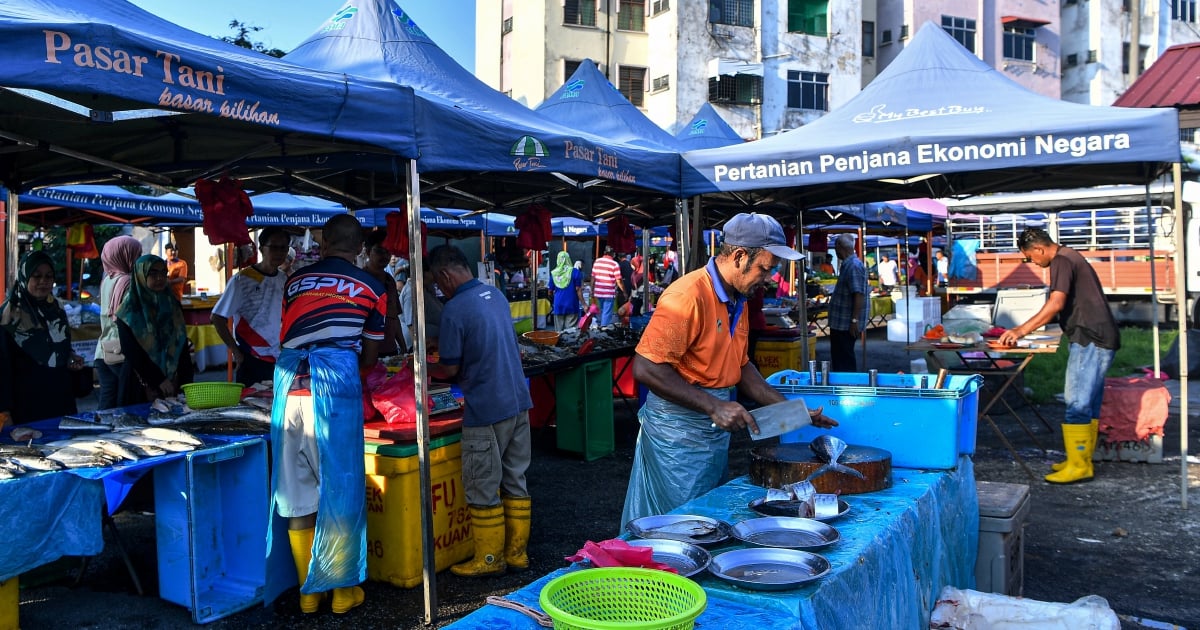The rising cost of living seems to be a major concern. Inflation is not just confined to Malaysia, but appears to be a global phenomenon.
But while global inflation is a vexing issue, all politics, as they say, is local.
So rising costs of everyday items, such as basic foodstuffs, can become a serious concern not just for the man in the street but for politicians and governments, too.
This is no different in Malaysia, of course. The precise reason why we even have a ministry dedicated to all matters related to cost of living.
Nothing bothers voters more than being hit directly in their pockets.
I was in Manila this past week and the same thing hit me strolling through the city’s malls and especially the supermarkets. In fact, not quite the same thing.
Manila is like a second home to me being a regular visitor, but in this latest trip, prices seem to hit me rather hard!
I am only familiar with things I usually buy back in Kuching, so my experience this trip is purely anecdotal. Like a jar of imported jam.
The price is shocking, comparatively speaking. It costs 350 pesos or the equivalent of RM28. I usually grab it at the supermarket for RM16.
Similarly, the prices of imported table grapes. They are a rather affordable fruit that I buy and consume quite a lot of in Kuching. In Manila, the prices mean they can only be an occasional luxury for me.
A restaurant manager confirmed my hunch about soaring food prices in Manila. He had just returned this year after 13 years of working and living in Kuala Lumpur. I asked if he missed Malaysia.
Yes, came the unambiguous reply. And why particularly, I further enquired. Things are so affordable in Malaysia, came his response.
Things he was used to getting in Malaysia, he cannot readily find them in Manila. And he feels his earnings drained from everyday expenses.
So yes, Malaysians grumble about rising prices. I am just as guilty lately. But I think we are still a very lucky lot.
What we feel hitting our pockets are relative pinpricks compared, for example, with the Philippines, which is a lower-income country than ours.
Then there is Singapore which increasing numbers of Malaysians seem to be enamoured of for the strength of its currency and, therefore, potentially high earnings.
But surely, given the city-state’s reputation as one of the most expensive places in the world to live in, the high wages so many Malaysians seemingly command there means something only if converted back to ringgit.
Unless these Malaysians commute daily back to Johor after work each day, their high Singapore wages will not translate to any appreciable higher standards of living if they have to spend on accommodation and food living there.
A better living standard and truly high salaries will only come to Malaysians with high skills and talents that will be in demand anywhere, not just in Singapore.
For the rest of us, I dare say the grass is, as always, greener back home.
Yes, many among us grumble about relatively low wages, but if prices are comparatively lower back home, those “low” wages still translate to superior purchasing power at home.
The government is right to keep a very close watch on food
inflation as accountable
governments everywhere should. To be sure, most ordinary Malaysians are focused only on what their earnings buy them at home.
If only they travel beyond home shores, they will know that they still have much to be thankful for with relatively affordable prices and a more than decent living standard overall.
* The writer views developments in the nation, region and wider world from his vantage point in Kuching
© New Straits Times Press (M) Bhd

